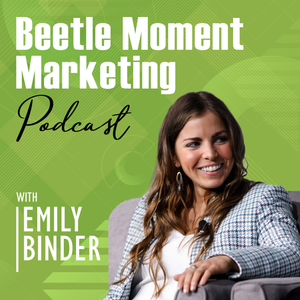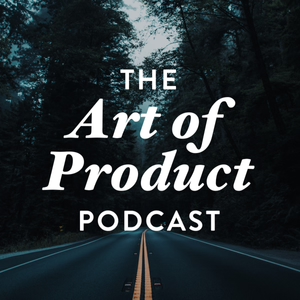
Why Google Search Sucks And A Tribute To Neil Gaiman
01/31/23 • -1 min
Google grants access to information kings didn’t have 50 years before. I have consumed so much content, books, podcasts, movies, articles, songs, and possibly the Ph.D. thesis of a woman from Chesapeake. I cannot remember it all.
Like most, I’ll occasionally use Google to find a specific but only half-recalled crumb of content. Increasingly I use services other than Google because Google sucks as a search engine. No, Grammarly, I don’t mean “Google search could be better.” Google search is worse than it was three years ago.Toronto Star, Fast Company, Freakonomics Radio, Search Engine Journal, The Atlantic, Washington Post, ITPro, The Telegraph, The New Daily to name a few sources." data-wpel-link="internal">3
People Google Search In Two Ways
People use Google to find general information where any credible source is acceptable. Or they use Google looking for specific results.
Searching, “who is Neil Gaiman”, or “list of the endless in the Neil Gaiman series” will likely give searchers the answers they seek.
But ask with less specificity, incorrect information, and synonyms, “list of the eternals from the Marvel comics books by Neil Gaiman” and Google fails to return an answer about the DC Comics series The Sandman.
A human could justifiably struggle to answer the same question. This is a fundamental limitation of indexing an evolving glob of information.
Complexities Of Indexing Growing Information
You don’t need to keep an index for a few books on a nightstand. If you have no memory of one or more books, just read the dust jackets. This solution doesn’t scale.
At libraries with rooms of shelves crammed with books, indexing them is a process. Library classification is complex, but every book has its place. Staff spend their days’ shelf reading, looking for out-of-place books, and putting them where they belong.
Google is the shop with an index of the web. Per a Google help page, “that index is similar to an index in a library, which lists information about all the books the library has available.” Instead of books, Google indexes webpages.
Google was the first search engine to use bibliometrics as part of an algorithm to sort and rank results based on quality and relevance to a search. People used this index of webpages to find the specific in the everything. The web has grown exponentially, shifting as pages are changed, deleted, replaced, and moved.
Few Attempt To Manipulate Libraries
Ranking at the top of a highly searched term on Google can mean millions of dollars. It’s like a high-profit marathon that never ends, and only pays out while you’re winning. The incentives mean Google has been playing cat and mouse with marketers trying to beat the algorithm since the early days.
For a few years now, Google, the Kleenex of online search, has been observed as worse than it once was. Marissa Mayer, a former Google and Yahoo executive, implied in an interview with
Google grants access to information kings didn’t have 50 years before. I have consumed so much content, books, podcasts, movies, articles, songs, and possibly the Ph.D. thesis of a woman from Chesapeake. I cannot remember it all.
Like most, I’ll occasionally use Google to find a specific but only half-recalled crumb of content. Increasingly I use services other than Google because Google sucks as a search engine. No, Grammarly, I don’t mean “Google search could be better.” Google search is worse than it was three years ago.Toronto Star, Fast Company, Freakonomics Radio, Search Engine Journal, The Atlantic, Washington Post, ITPro, The Telegraph, The New Daily to name a few sources." data-wpel-link="internal">3
People Google Search In Two Ways
People use Google to find general information where any credible source is acceptable. Or they use Google looking for specific results.
Searching, “who is Neil Gaiman”, or “list of the endless in the Neil Gaiman series” will likely give searchers the answers they seek.
But ask with less specificity, incorrect information, and synonyms, “list of the eternals from the Marvel comics books by Neil Gaiman” and Google fails to return an answer about the DC Comics series The Sandman.
A human could justifiably struggle to answer the same question. This is a fundamental limitation of indexing an evolving glob of information.
Complexities Of Indexing Growing Information
You don’t need to keep an index for a few books on a nightstand. If you have no memory of one or more books, just read the dust jackets. This solution doesn’t scale.
At libraries with rooms of shelves crammed with books, indexing them is a process. Library classification is complex, but every book has its place. Staff spend their days’ shelf reading, looking for out-of-place books, and putting them where they belong.
Google is the shop with an index of the web. Per a Google help page, “that index is similar to an index in a library, which lists information about all the books the library has available.” Instead of books, Google indexes webpages.
Google was the first search engine to use bibliometrics as part of an algorithm to sort and rank results based on quality and relevance to a search. People used this index of webpages to find the specific in the everything. The web has grown exponentially, shifting as pages are changed, deleted, replaced, and moved.
Few Attempt To Manipulate Libraries
Ranking at the top of a highly searched term on Google can mean millions of dollars. It’s like a high-profit marathon that never ends, and only pays out while you’re winning. The incentives mean Google has been playing cat and mouse with marketers trying to beat the algorithm since the early days.
For a few years now, Google, the Kleenex of online search, has been observed as worse than it once was. Marissa Mayer, a former Google and Yahoo executive, implied in an interview with
Previous Episode

Learning From History To Avoid Learning From Failure Is Good
“I didn’t fail 1,000 times. The light bulb was an invention with 1,000 steps.” Was said by Thomas Edison after a reporter asked him How did it feel to fail 1,000 times [when inventing the lightbulb]?” I really think failure is needed to further knowledge. But not every failure pushes the limits of human understanding.
If you fail to bake a cake 1,000 times because you’re choosing not to follow a recipe or basic understanding of chemistry; you chose to fail 1,000 times. You could have at any point, made a cake by following directions written down by other people who successfully baked cakes in the past.
Saying “you win some you learn some” to justify choosing to fail over and over again, because you decided to ignore all prior knowledge is dumb. Think of all the things you could learn with the time you spent trying to figure out that sugar is sweet, and leaven makes bread rise.
Cakes are at least a fairly low-risk endeavor to waste time on. What happens if you try to rediscover how you avoid a bridge collapsing? It’s clearly preferable to learn from history whenever possible; this applies to everything.
Nearly everyone who learns to ride a bike will at some point fall off that bike before they can comfortably commute via bicycle. But it is, astoundingly unnecessary to learn by trial and error that you sit on the bike with the handlebars in front of you.
In Summary
Yes, failure is a part of success.
No, you are not awarded points for failing because you shrugged off expertise and prior knowledge.
Article by Mason Pelt of Push ROI. First published in MasonPelt.com on June 16, 2022. Photo: “Danger of Death By Failing” by AlmazUK is licensed under CC BY-NC-SA 2.0.
The post Learning From History To Avoid Learning From Failure Is Good appeared first on Mason Pelt.
Next Episode

How Gawker Media Once Kept Silicon Valley In Check
Update 2/22/23: Correction that OZY Media COO, Samir impersonated a YouTube executive and the addition of a note about OZY Media CEO, Carlos Watson being arrested for fraud.
With the recent death of Gawker 2.0, I want to explain how the first Gawker acted as a flawed Guardian of the startup world.
Most figures in the startup world only see press in the form of predictable mentions from the efforts of PR firms. Sam Bankman-Fried, Elizabeth Holmes, Charlie Javice, and others flew near enough the sun to merit media scrutiny. But the behavior of each is typical of startup founders at every stage.
At one time, Valleywag part of Gawker served as a tattletale hall monitor for the startup community. But since Peter Thiel sued the publication out of existence, the startup world has run amok without media coverage until hundreds of millions of dollars are involved. That’s a problem for the entire ecosystem.
People like to worship innovators. In the startup world, the belief innovation excuses all is prevalent. As most subscribers to the belief seem to see it, they are the innovators being excused. Paltry restrictions such as contracts, reasonable disclosure, and compliance with the law do not apply to them.
Elon Musk Is Peak Startup Bro
Twitter is no startup; it is a 16-year-old company that IPOed over nine years ago and was taken private again via the seventh-largest acquisition of all time. Elon Musk’s behavior, however, is peak startup-bro. Only months into his tenure as Twitter’s owner, he stopped paying office rent and is considering not paying severance packages to former employees.
Even before the acquisition, Musk’s willingness to breach a 44 billion dollar deal was identical to founders who stiff service providers for a few hundred dollars. I know this because I’ve been dealing with startups since I was a teenager.
If Musk doesn’t pay bills, he gets panned by the mainstream press and drives up legal fees defending inevitable lawsuits. All with an attitude that he’s too big to fail. Small startups operate under the radar. Too small to sue and not worth writing about.
Ten years ago, two startups out of a Forbes top 10 rated startup accelerator stiffed me on petty amounts of money for services provided. The company that owed me $150 went on to raise $630K before going under. The one that owed $1,200 raised $1.1 Million prior to exsanguination.
Weak Due Diligence And Huge Upsides
They didn’t pay because they had no reason to pay. Due diligence is incredibly weak in early-stage startup investing. Problems not apparent in lawsuits and media coverage often go unnoticed. Startup investments are high-risk, high-reward, and most are expected to fail. Those who invest in startups invest in a lot of them.
A startup failure isn’t the end for a founder, as investors frequently fund the same founders again. Founders with a failed startup behind them are generally better able to find funding from the same investors for the next venture than first-time founders.
For the investors getting in at the ground floor for a few big successes offsets the failure of most companies. For founders, weak due diligence and the possibility of fat checks have led to some outrageous lying.
The Lies
JPMorgan Chase acquired a startup called Frank because the company had over 4 million users. A lawsuit filed by JPMorgan Chase claims that the company only had 300,000 real users and created 4.265 million fake customer records to satisfy due diligence.
A couple of years ago, news broke that Ozy Media COO, Samir Rao impersonated a YouTube executive during a call with Goldman Sachs while attempting to raise $44 million [correction an earlier version of this story state...
If you like this episode you’ll love
Episode Comments
Generate a badge
Get a badge for your website that links back to this episode
<a href="https://goodpods.com/podcasts/ramblings-by-mason-pelt-podcast-255583/why-google-search-sucks-and-a-tribute-to-neil-gaiman-29725364"> <img src="https://storage.googleapis.com/goodpods-images-bucket/badges/generic-badge-1.svg" alt="listen to why google search sucks and a tribute to neil gaiman on goodpods" style="width: 225px" /> </a>
Copy




